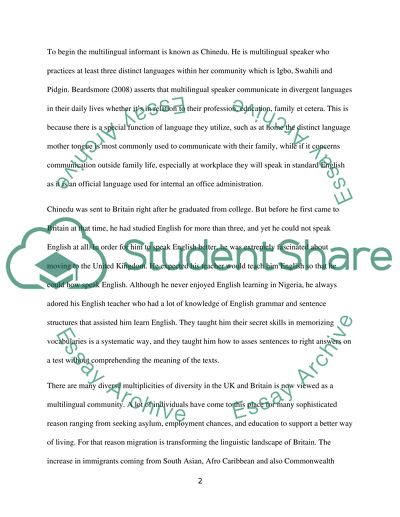Cite this document
(“A narrative account of a multilingual informant Essay”, n.d.)
A narrative account of a multilingual informant Essay. Retrieved from https://studentshare.org/education/1496338-a-narrative-account-of-a-multilingual-informant
A narrative account of a multilingual informant Essay. Retrieved from https://studentshare.org/education/1496338-a-narrative-account-of-a-multilingual-informant
(A Narrative Account of a Multilingual Informant Essay)
A Narrative Account of a Multilingual Informant Essay. https://studentshare.org/education/1496338-a-narrative-account-of-a-multilingual-informant.
A Narrative Account of a Multilingual Informant Essay. https://studentshare.org/education/1496338-a-narrative-account-of-a-multilingual-informant.
“A Narrative Account of a Multilingual Informant Essay”, n.d. https://studentshare.org/education/1496338-a-narrative-account-of-a-multilingual-informant.


